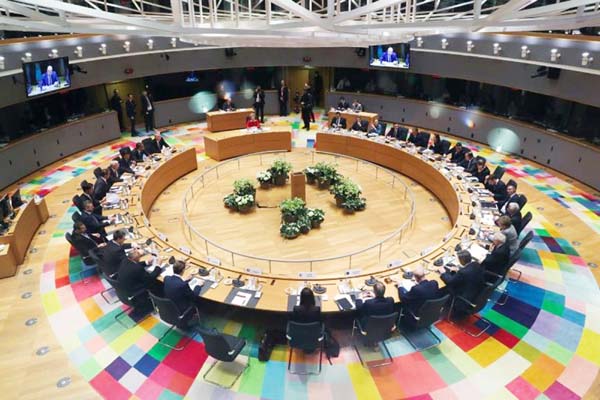
AFP, Brussels :
An EU summit called to set the bloc’s next seven-year budget ended in impasse late Friday, riven by competing groups among the 27 member states and pressure to fill a funding gap left by Brexit.
Differences were “still too great to reach an agreement,” German Chancellor Angela Merkel told reporters at the end of the two days of talks in Brussels.
No date had yet been set for another summit to try again, but Merkel added that “we are going to have to return to the subject”.
The trillion-euro-plus budget, the multiannual financial framework, is meant to be operational from next year and run to the end of 2027.
But the summit revealed stubborn differences between a handful of wealthy “frugal” states and a larger group wanting more money to meet both big European ambitions and to fill the 75-billion-euro shortfall left by Britain’s exit from the EU last month.
“Unfortunately we have observed it was not possible to reach an agreement, we observed we need more time,” said European Council President Charles Michel, who had called the extraordinary summit and stewarded the talks.
He said, however, he was right to make the effort: “As my grandmother said, to succeed you first have to try.”
European Commission President Ursula von der Leyen, who is counting on a big enough budget to meet her executive’s “geopolitical” ambitions, said the EU discord was sign of “democracy”.
Despite Merkel and French President Emmanuel Macron teaming up to back Michel in his search for an acceptable compromise, two groups of countries dug in their heels.
One was the so-called “frugal four” made up of Austria, Denmark, the Netherlands and Sweden, which wanted the budget reined in to reflect the UK’s absence and to avoid them having to shoulder a bigger budgetary burden.
The other was the “friends of cohesion”, 16 member states including Italy, Spain, Portugal, Greece, Poland and Hungary that want to ringfence EU spending on things like infrastructure as well as farm subsidies.
“We ended up in a situation of group versus group. That’s why it failed,” a source close to the negotiations told AFP.
Germany and France stood apart from those groups but had their own interests to defend.
Merkel is determined to retain a budget rebate her country has received ever since Britain wrangled one for itself while a member. Macron, who is against the rebates, is resolute that the farm subsides-from the Common Agricultural Policy (CAP) — not be cut.
“The CAP cannot go to pay for Brexit,” Macron said as the summit broke up. The French president was to visit a national farm show in Paris on Saturday.

